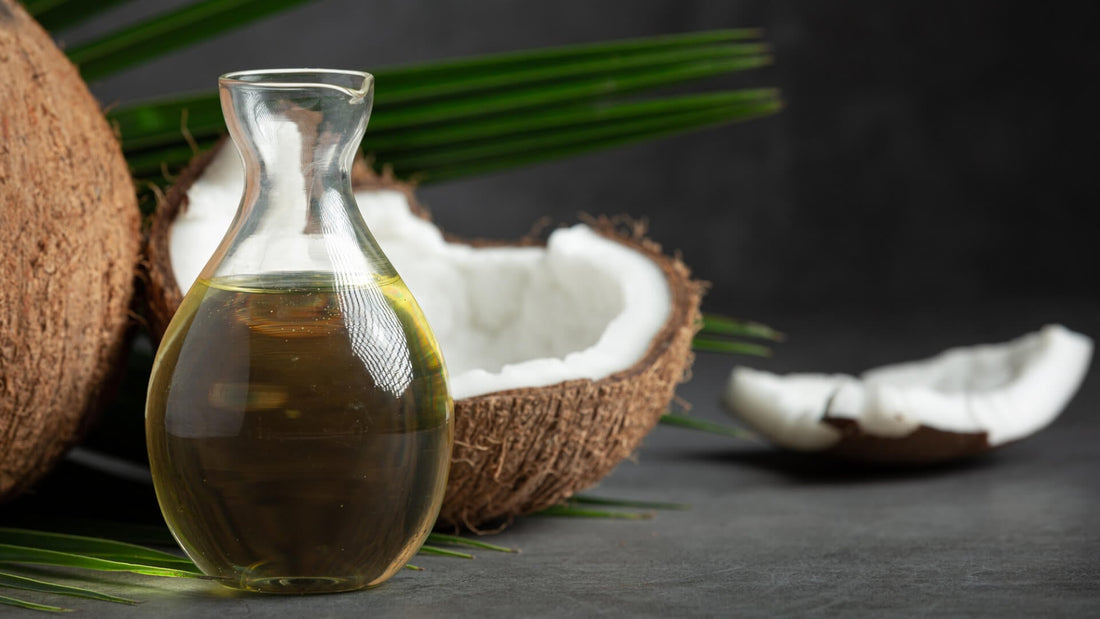Coconut oil has become a must-have in natural beauty routines. Thanks to its moisturizing, antioxidant, and nourishing properties, it can be applied to both skin and hair. In this guide, we explain how to use coconut oil correctly according to the area of your body, with practical tips, benefits, and warnings to get the most out of it.
Table of Contents
- 1. Brief Introduction: We will see How to use Coconut Oil step by step
- 2. What is it and what is it used for? Brief description and main benefits
- 3. Preparation before use: Previous advice according to the applied area
- 4. How to use coconut oil on your skin? Specific tutorial (face, body)
- 5. How to use coconut oil on your hair: Detailed steps
- 6. Additional tips and recommendations: Tips for better results
- 7. Final conclusion
- 8. Frequently Asked Questions: FAQ based on common doubts
Brief Introduction: We will see How to use Coconut Oil step by step
Coconut oil, as some users also search for it, has gained popularity in cosmetics for being a natural, effective, and versatile ingredient. It can be applied directly to the skin, face, or hair, either neat or combined with other products.
In this step-by-step guide, you'll learn how to apply coconut oil to your hair, skin, and face , when to use it, and what mistakes to avoid. A simple, natural routine that's within everyone's reach.
What is it, and what is it used for? Brief description and main benefits

Coconut oil is a vegetable oil extracted from the flesh of mature coconuts. At room temperature, it typically has a solid or semi-solid texture, but it liquefies with body heat, making it very easy to apply.
Thanks to its high content of lauric acid, capric acid and vitamin E, coconut oil offers benefits such as:
- Deep hydration without a greasy feel
- Antibacterial and antifungal properties
- Improves skin elasticity and appearance
- Protection and repair of dry or damaged hair
- Strengthening the skin and scalp barrier
Plus, it's suitable for all skin types, including sensitive skin, and also for curly, straight, dry, or frizzy hair.
Preparation before use: Previous advice according to the applied area
Before applying coconut oil, it's important to prepare the area well to enhance its effects and facilitate absorption.
How to prepare the skin?
Cleanse your skin with a gentle, sulfate-free product. The oil penetrates best if applied to slightly damp skin, after showering or a thorough facial cleansing. If you use it at night, make sure you've properly removed all makeup and sunscreen.
How to prepare your hair?
Wash your hair with your usual shampoo and remove excess water with a towel. Coconut oil is best absorbed when your hair is damp and clean. If you're applying it to your scalp, make sure it's free of any product residue.
How to use coconut oil on your skin? Specific tutorial (face, body)
Coconut oil can be applied directly to your skin as a natural moisturizer. It's ideal for dry skin, redness, or even as an overnight facial treatment. Here's the step-by-step guide:

- Cleanse your skin thoroughly with warm water and a mild cleanser.
- Melt a small amount of coconut oil between the palms of your hands.
- Apply a thin layer to the skin of the body or face with gentle circular massages.
- Leave it on. On your face, you can use it as a night serum and remove it in the morning if you have oily skin. On your body, you can leave it on without rinsing.
- If you have very dry skin, repeat the application once a day.
Benefits for the skin
- Deeply hydrates without chemicals
- Soothes irritated or eczema-prone skin
- Helps reduce blemishes and improve uneven tone
- It has antibacterial properties useful for acne-prone skin.
- Strengthens the skin's natural protective barrier
How to Use Coconut Oil on Your Hair: Detailed Steps
Coconut oil is an excellent treatment for nourishing, protecting, and repairing your hair. You can use it as a mask, serum, or pre-shampoo. Here's how to apply it:

- With clean, damp hair, apply a small amount of coconut oil to your hair.
- Massage into your scalp if you want to treat dandruff or dryness.
- Spread from mid-lengths to ends if you're looking to repair and add shine.
- Leave on for 30 minutes to 2 hours. For a deeper treatment, you can leave it on overnight with a shower cap.
- Wash well with a mild shampoo until all the oil is removed.
Benefits for hair
- Nourishes and softens dry or damaged hair
- Reduces frizz and split ends
- Strengthens hair fiber and prevents breakage
- Soothes scalps with dandruff or flaking
- Provides natural shine without weighing down
Additional tips and recommendations: Tips for better results
- Use pure, virgin, cold-pressed coconut oil to ensure its quality.
- Always apply in small quantities : a few drops are usually enough.
- If you have oily skin, test on a small area first before using it all over your face.
- For a brightening effect, you can mix coconut oil with your usual cream or add a few drops to your makeup base.
Common Mistakes When Using Coconut Oil: Avoiding Possible Problems or Misuse
- Using too much can leave a greasy feeling and clog pores.
- Applying it on dirty or unmade-up skin reduces its effectiveness.
- It is not recommended for skin with active acne without first consulting a dermatologist.
- On very fine or oily hair, it can weigh it down if not removed properly.
Final conclusion
Coconut oil is one of the most versatile and effective natural ingredients for personal care. With proper use, you can achieve softer, nourished, and radiant skin, as well as strong, shiny, and healthy hair.
Always remember to adapt its use to your skin and hair type and choose a quality product to take full advantage of all its benefits. Used regularly, it becomes a true natural beauty staple.
Frequently Asked Questions: FAQ based on common doubts
Can I use coconut oil every day?
Yes, especially on dry areas of the body or hair ends. On the face, it's best to use it 2-3 times a week if you have oily skin.
Can it be used on sensitive skin?
Yes, but it's always a good idea to test a small area before applying it across the board.
Does coconut oil clog pores?
It can be effective for some oily skin types, so it's important to use a small amount and evaluate how your skin reacts.
Should I rinse coconut oil out of my hair?
Yes, unless you apply just a few drops to the ends as a serum. For longer treatments, it's best to wash it out.
Is it good for after sun?
Absolutely. Coconut oil soothes and regenerates the skin after sun exposure, although it's no substitute for sunscreen.







